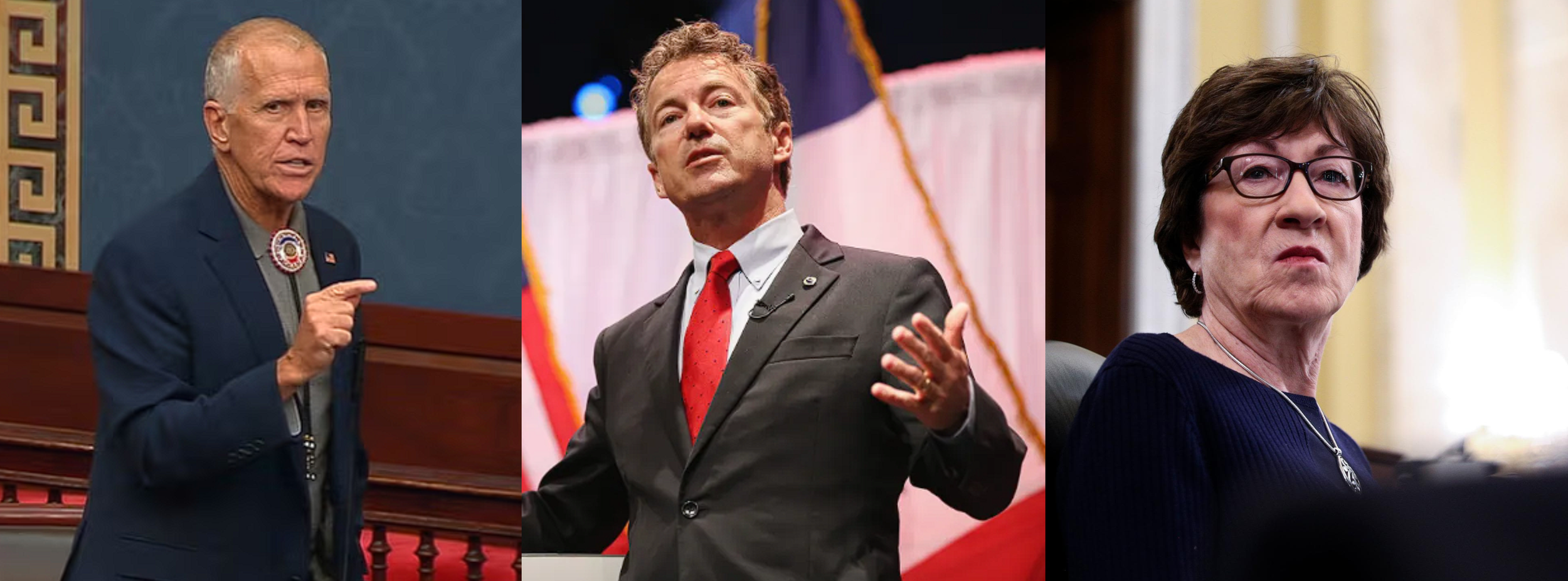BREAKING: Trump’s “Big Beautiful” Megabill Passes in Senate, Headed to House
By the slimmest margin possible, the Senate passed President Trump’s tax and spending bill Tuesday, with Vice President JD Vance casting the crucial tie-breaking vote in a 51-50 decision. The razor-thin outcome highlights sharp divisions in the Senate and triggers changes to federal budget priorities that critics say could seriously harm vulnerable communities.
The House of Representatives had previously passed an earlier version of this bill, which then moved to the Senate for debate and approval. After the Senate’s narrow decision, the legislation now returns to the House for a final vote. Opposition from some Republicans over funding cuts and other provisions means its passage is not guaranteed, making the next few days critical for the bill’s future.
The bill includes a wide range of measures aimed at reducing federal spending, with significant reductions proposed for education and healthcare programs that support disabled individuals. Among the most concerning are cuts to Medicaid, which plays a crucial role in funding health services for students with disabilities, including nursing, therapy, and other supports that help them access education.
Advocates warn these cuts could disrupt critical services and resources, further marginalizing an already vulnerable community and threatening the well-being and educational opportunities of disabled individuals nationwide.
“This reconciliation bill consists of tax and spending cuts that will harm disabled students so much. The bill will implement an estimated spending cut of nearly $350 billion from education,” said Casey Doherty, policy analyst for the Disability Justice Initiative at the Center for American Progress.
“The disability community is very concerned about cuts to Medicaid. I think a lot of people don't realize how much Medicaid pays for in-school programs [as well],” Doherty added. “Medicaid actually supports $7.5 billion in K-12 health services annually.”
The Senate vote was closely divided along party lines, with all Democrats and three Republican senators opposing the bill. These Republicans are Thom Tillis of North Carolina, Rand Paul of Kentucky, and Susan Collins of Maine, raising concerns about the bill’s spending cuts and overall impact.
Among the most vocal opponents was Senator Rand Paul, who criticized the legislation for its potential to increase federal spending despite claims of cuts. Senator Susan Collins also expressed reservations, emphasizing the bill’s possible negative consequences for vulnerable populations, including those relying on Medicaid and education programs.
J. Scott Applewhite/AP
Just moments before the narrow passage of Trump’s agenda bill, Senator Angus King of Maine, an independent who caucuses with Democrats, publicly voiced his frustration as he left the Senate chamber. Known for his generally measured tone, King raised his voice at his Republican colleagues, loud enough to be heard by reporters observing from the gallery.
“Shame on you guys. That was the most disgusting vote I’ve ever seen in my life,” said King.
With the bill returning to the House of Representatives for a final vote - with an intended deadline of July 4 - individuals concerned about its potential impact on disabled and other marginalized communities can take action by contacting their representatives. Given the narrow margins and the high stakes, outreach from constituents may influence how lawmakers approach the final version of the legislation. Phone calls, emails, and personal testimony about how these proposed cuts could affect access to education or healthcare may be especially impactful at this stage.
Additionally, the American Association of People with Disabilities (AAPD) has created a Medicaid Defense Hub to provide detailed information on how Medicaid supports disabled individuals and to offer tools for advocacy. This resource can help guide those who want to learn more and take effective action to protect essential Medicaid services from proposed cuts.


